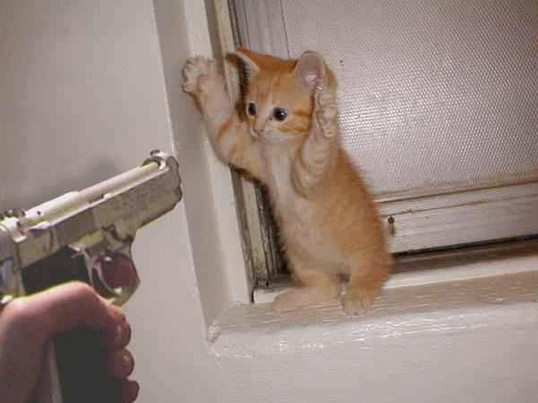
Worries that darken the day
in time slip away
like a fistful of sand
leaving only the regret of wasted time

Worries that darken the day
in time slip away
like a fistful of sand
leaving only the regret of wasted time
I Am, said He
who was born from the One
He said We shall do all that He has done
and even greater things
yet we obsess on what He was
and miss who we are,
and what we are meant to do

True confession…as much as I would like to believe otherwise, and even convince others of to the contrary, things get to me. In spite of my best efforts to be present, to be grounded, to have perspective, to take it in stride. And it has been kicking my ass of late.
What I have determined as I attempt to climb out of this hole I’m in is that growth is upon you when you are confronted with change, and everything that used to work for you no longer does. When you have absolutely no idea how to proceed, how to figure things out, then that is a good indication that you are growing. I have said repeatedly in my leadership development work, that going from a state of unconscious incompetence (not knowing what you don’t know), to conscious incompetence (now knowing what you don’t know) is one of the most terrifying transitions to go through. And yet so necessary in the development as a leader.
Guess what? It applies to personal change as well. And that is squarely where I am right now. It probably doesn’t help matters that I judge the fact that I should be dealing with it better. But I have been lulled into a state of “control” for some time now, believing that everything I had experienced to this point was enough to get me through my current state of growth and change. Not even.
Save for one practice, that is. And it is a bitch.
Surrender. 
God, it’s hard to even write it. But the honest truth is when I allow myself to intone those words that come so hard for me….I DON’T KNOW…how, or when, or why, or even what. I don’t know, and I’m giving up trying to believe that I should know, then it doesn’t feel so bad anymore. There is still the not knowing. And the things that bedevil me about how to fix, or overcome, or in some other way DO something with, are still there. But I can somehow laugh at them now.
And know, in some meaningful way that I cannot fully describe now, that this growth is necessary.
There is something I’ve noticed this year, more than any before and I suppose it has to do with being in my fifties. Stuff hurts. My son and I went snowboarding this last week. Granted, we had the mountain virtually to ourselves so we were limited only by how fast we could make it down the hill. Still, I can remember not that long ago when I would be the first on the lift up the mountain, and the last down the hill and still left wanting for more. Not so this time. Two hours into our day, I found myself constantly checking the time to see how much longer until lunch. After the lunch break, my legs were the consistency of lime jello and I was reminded of gravity, catching an edge and jackhammering my head backwards against the hard pack. Thank God for helmets.
The next day wasn’t so bad. The third day, I was a one-man bitch fest. Every small muscle group I didn’t know existed screamed out for recognition. Even my bunions hurt.
Good Lord, I sound like my dad.
But it does bring something to the surface for me. How much I have defined my life by my physical experience. Not that there hasn’t been contemplation. Meditation. Discernment. But in large, my life has largely been experienced through the lens of the physical. In motion.
In the Bhagavad Gita, Lord Krishna explains the various yogas, and the Karma Yoga, the
Prince Arjuna and Lord Krishna
performance of work without the attachment to results. This illustrates the primary path I have lived, though somewhat light on the attachment part. The letting go of attachment has been the work within the work. The letting go of expectations and attachments to results. I can’t explain enough how conflicting this has been at times. As a business advisor, results have been a primary focus of my work. As an executive coach, discipline in doing the work, ignoring results has been the focus. One brings means, the other brings meaning.
All this to say, my body is telling me, louder every day, that as my primary vehicle to doing the work, it is not unlimited. It is finite rather, and there in the acceptance there is humility and a dose of grace. To do anything else would be ignorance. Plastic surgery is not for me and it only delays the inevitable and invites the macabre.
I heard the thought run through my mind the other day, “is it over?” Life that is, through the physical lens. In a sense yes, but I have to laugh. That is my ego talking. Worrying rather.
But, this is about a shift. A transcendence from one experience to another. In the BG, Krishna talks about the Ksetra–Kshetrajna Vibhaga yoga–the separation of matter, the physical experience, to the spirit, the One consciousness. And as I reflect on this, I realize how human history is filled with examples of this transcendence, but only through a binding of the physical. Some limitation of the body that forces one to go within  themselves and seek to detach from it. St. Ignatius experienced his transcendence while convalescing from a life-threatening battle injury, which lead to the founding of the Jesuit order. In the waning moments of Pope John Paul’s life, he spoke of the perfection of his suffering in the failing of his body and his pending transcendence through physical death.
themselves and seek to detach from it. St. Ignatius experienced his transcendence while convalescing from a life-threatening battle injury, which lead to the founding of the Jesuit order. In the waning moments of Pope John Paul’s life, he spoke of the perfection of his suffering in the failing of his body and his pending transcendence through physical death.
This is why I love to read Anne Lamott. She seems to embody this letting go and writes about it in an amazingly authentic, uproariously funny way.
I hope to transcend before I die.
All this to say, profound things happen, or at least can happen if one is willing to accept the failing of the physical, the temporary nature of the body and be open to the larger consciousness that is right in front of us. Right in front of me.
My new affirmation is this: In this failing, I will rejoice in this increasingly aching body. I will rejoice in the extra time it takes to get down the mountain and laugh at my ego’s attempt to decry losing it’s edge. To do anything else is to reject the cosmology of the universe, that the sun does not rise and set, and that hair plugs, teeth whitening and tummy tucks will bring lasting satisfaction.
 It’s the thing to say these days
when you are secular spiritual
Namaste, she replies
trading smug for trite
(though she is better looking)
They have the speech
of those in the know
Totes’ he winks
Totes’ she grins
And they move on
Gloating in their rendition
If only
If only they knew
If only they knew the gravity of their words
To say: Namaste
Is to: Bow to your holiness
And actually did
The impermanence of
Saying the right thing
Looking the right way
Knowing the right words
would disappear into white noise
Nothing would be left
save for the other
And we would
bow in supreme reverence
It’s the thing to say these days
when you are secular spiritual
Namaste, she replies
trading smug for trite
(though she is better looking)
They have the speech
of those in the know
Totes’ he winks
Totes’ she grins
And they move on
Gloating in their rendition
If only
If only they knew
If only they knew the gravity of their words
To say: Namaste
Is to: Bow to your holiness
And actually did
The impermanence of
Saying the right thing
Looking the right way
Knowing the right words
would disappear into white noise
Nothing would be left
save for the other
And we would
bow in supreme reverence
“The truth will indeed set you free…but first, you will suffer for it.” – Dr. Cornell West
I learned about archetypes several years back from a Wayne Dyer tape a friend lent to me. He described the various phases we transition through as we age, or at least hope to transition through–child, cowboy, warrior, statesman, sage.
The 90’s was my warrior phase and my wife was dragged along for ride. We built a house, started a family, became a business owner, killed it in the stock market…all the things that every other overzealous middle-adult-child-of-an-alcoholic did. Bigger, faster, better. And I projected this energy into every aspect of my life. Including my faith life.
We were attending a small Episcopal church in our town and I was asked to join the Vestry which is the lay leadership council. Soon I was Senior Warden, the big shit, weighing in on decisions, feeling self-important and learning all the right things to do and say in the Anglican liturgy. Well, almost all the right things that is. The Suffragan Bishop paid a visit one Easter to preside over the vigil service. I volunteered for cantor duties as I was full of confidence from diving into just about everything else with the attitude that I would grow wings on the way down.
I should have practiced.
Three bars into the Vigil I realized I was over my head. I badly faked my way through the rest of it. Bishop Hampton, a tall and lanky silver haired Dr. Welby mid-westerner type was kind and didn’t protest. I think he prayed for me.
Undeterred, I reveled in the hierarchy of the church, even attending a couple of the annual Diocesan conventions as a delegate. Rubbing elbows with the movers and shakers from Seattle made me feel important and I was immersed in what I thought was important work. In all of this however, there was this undercurrent–an inkling of sorts that there had to be more to a faith life than this. As if I were play acting. I talked out loud to God about this, mainly in the car when I was driving by myself, but they were nothing more than one-sided conversations. Absent of anything else to do, I continued on, questioning.
Then September 11, 2001 came and initiated what I have since coined the grand trifecta: First the the terrorist attacks, which left me feeling numb and angry. Six months later my dad died from Alzheimer’s. Though we had expected his death would come sooner than later with his failing health, it still came as a surprise and made the surreal even more so. Six months after his death, my mom died from metastatic breast cancer. As with Dad, we knew her time was limited when her cancer returned, however this was different.
With Mom’s death came a sense of urgency and clarity about my life, about who I was and what I was put here to do. More to share later, but suffice to say her death brought on a reconciling of sorts about my faith. In particular, with Jesus. He had always been a part of my tradition, but in a history book, mythic figure sort of way that I would awkwardly pray to because that was what I was taught to do. Pray that is…when I was in church at the right moment in the service, or before I went to bed just in case I died in my sleep. Because that is what I was taught.
But I was also being pulled in different directions of spiritual contemplation, much of it influenced by Mom because she was a seeker of spiritual truth from many different faiths and that impacted me. I rather fancied the diverse approach as well, picking and choosing bits and peices of faith truth, like grazing at the salad bar. The problem was, that approach wasn’t transforming either. Mind you, I was not caught up (nor still am) in the theological cluster-F-of-an-argument around John 14:6 that many of my staunch Christian brothers and sisters aggressively defend. But still, I was yearning for a critical mass to my faith.
And I kept coming back to the history book. The mythic figure Jesus to pray to, and especially in the days and weeks following the trifecta, I was asking Him some hard WTF questions like, “who am I supposed to I follow?”
And He finally responded. Like a hoot owl calling in the quiet foggy morning.
He said,
“You have to choose, Rick.”
I paused, for a minute, or maybe it was a month, or a year, and then in a bread-in-the-toaster, morning-coffee-moment sort of way, I responded.
“I choose you.”
And then I said,
“I don’t get the cross.”
And the Owl hooted back,
“In time, you will know.”
My one and only interaction with religion at WWU happened while crossing paths with a CCF keg mission. I was stumbling out of a dorm party late on a Saturday night when I noticed three guys standing on the sidewalk watching me. As I waited for my roommate to finish hitting on a girl near the exit, one of the guys approached.
“Hey,” I replied.
A long, uncomfortable pause followed and then he introduced himself. I don’t recall much of the conversation after that, but it must’ve been convincing because he was ringing our doorbell at 8:45 the next morning to take us to church. I say us, because I roped my roommate into coming along. The service went almost two hours, with raising of hands, altar calls and threats of damnation. It was the full evangelical enchilada. Boy, was my roommate pissed.
Being a lifelong Catholic, the revival service was definitely not his thing. It wasn’t mine either, but I was entertained with the people-watching, and especially with the  guy talking in tongues. I had seen a lot in my life to that point, but that was a first. Afterward, we were dropped in front of our apartment and that was the last I saw of our host until I heard him giving an impromptu sermon in the middle of Red Square between classes later that fall. As before, I was caught up in people-watching–some stopped to listen, some gazed in disbelief, but mostly people kept on walking, and so did I. While I would on occasion, attend a service during Christmas while home on break, church was a non-factor. I wasn’t without, however.
guy talking in tongues. I had seen a lot in my life to that point, but that was a first. Afterward, we were dropped in front of our apartment and that was the last I saw of our host until I heard him giving an impromptu sermon in the middle of Red Square between classes later that fall. As before, I was caught up in people-watching–some stopped to listen, some gazed in disbelief, but mostly people kept on walking, and so did I. While I would on occasion, attend a service during Christmas while home on break, church was a non-factor. I wasn’t without, however.
My church was the outdoors and through my immersion in it, through skiing, sailing and an occasional hike, I felt most at peace when I was in Nature. It would take awhile, but my awareness would eventually shift from me, to something bigger than me. And I would feel very small, yet connected to something really BIG. It was this experience that kept me returning to the outdoors and I felt a certain reverence for it. It was, however, disconnected from any doctrine that I understood, and existed separate from the God I had learned about in the church of my youth.
I met my wife to be in the waning years of college, and when we decided to marry we searched for a fitting place for the ceremony. Given my wife was a cradle Episcopalian, we ventured into a few of the churches in North Seattle, however after finding three parishes with not much more than aging, silver-haired rectors and fifty blue haired ladies in the pews, we returned to the Congregational church of my high school years. The same pastor was presiding, though his son had left several years before to seminary. The pastor was kind and helpful, guiding us through a Myers-Briggs exercise as part of his pastoral duties, and in an ode to the 60’s anti-establishment movement, wrote our own vows. Our voices were high and child-like and after much practice, we still got it wrong. She said I do. I said I will.
Within a year, I moved us to Los Angeles for a career opportunity. I was consumed with making the switch from engineering to sales, and my wife was working retail at the Glendale Mall. We lived in the foothills of the San Gabriel Mountains, less than a mile from Nasa’s Jet Propulsion Laboratories. I would ride my mountain bike up the Brown Mountain road to the El Prieto trail, a challenging descent full of hairpin switchbacks, thorny cacti and river rocks the size of wheelbarrows. Here again, away from the noise and humanity, I connected with something that I fail to accurately describe–from an engineering sense that is.
Gazing over the LA basin at the top of the trailhead, I would be reminded of how small I was, and yet I never felt diminished by it. I was energized rather, increased. Perhaps it was the reminder that I was not in control, and I found that to be such an amazing relief. On Sunday’s, I would take my aging, hermit of an uncle to a local restaurant for prime rib, deviled eggs and Becks beer. On the return to his house up Lake Avenue, we would turn east on Mendocino and then north on Maiden Lane, following it as it twisted left, then right, while the panorama of the San Gabriel’s shifted in the window frame of his ’68 Beetle. Here too, in the foothills, we were reminded of our place in the world. A toothless ninety year old, and me. My wife and I visited an Anglican church in Pasadena at some point, but felt out of place in the Sunday fashion show, and my company supplied Ford Taurus was no match for the BMWs and Mercedes in the parking lot.
Eighteen months later, we moved back north, landing in Washougal. As unlikely a place as I would have picked, it was the inexpensive property and proximity to the airport that was the rationale. I would learn later of a more profound reason for landing here. The children soon started showing up, every two years by my wife’s plan. We felt compelled to provide some framework for learning about faith so we ended up at the local Episcopal church. As we had found before, it had an aging rector and fifty blue haired ladies in the pews, but they were sweet and there was one other family who had children of similar ages. We decided to make it our home.
Thus it was here, in the last place I would have guessed, that I began to learn about Jesus. Not the Jesus I had been told about, however. But the intimate Jesus I began to experience–the Jesus that appears during the weakest and most painful of moments that emerge with a coming of age.
 My journey of faith has been the proverbial road less traveled. It began with being baptized in the Catholic church, a decision I believe was more out of, “this is what all good Catholics do,” than anything else. My parents were not religious per se, other than showing up for services twice a year at Christmas and Easter. Not that it would have made them religious if they would have gone more frequently. Maybe just observant Catholics.
My journey of faith has been the proverbial road less traveled. It began with being baptized in the Catholic church, a decision I believe was more out of, “this is what all good Catholics do,” than anything else. My parents were not religious per se, other than showing up for services twice a year at Christmas and Easter. Not that it would have made them religious if they would have gone more frequently. Maybe just observant Catholics.
By the late 60’s we had moved north to Washington and landed in the pews of a United Methodist congregation. Not observant Catholics anymore, we traded Eucharist with wine drunk from a chalice and bread torn from a loaf, for grape juice in small thimble cups and thin wafers that tasted like cardboard. The Methodist church we attended in Bellevue was a country club and the congregation did all the right things that enlightened churches were supposed to do: Preach from the lectionary, celebrate weddings and funerals, teach sunday school, host holiday bazaars and ice cream socials and produce a Christmas pageant that would be worthy of a front page article in the Bellevue American newspaper. Or at least the front page of the local section which comes after the sports and business sections.
This was not unique to the Methodists, however. You could have put any one of a handful of denominations in front of “church”–Episcopal, Presbyterian, Baptist, etc., and would have come up with the same formula.
 Regardless, the pastor looked like Dr. Marcus Welby, M.D., wore fine gray suits and drove a Cadillac. I attended sunday school like all the other good children. One Sunday morning while ducking out of class to use the bathroom, I noticed small draw string bags hanging from all the closed classroom doors. Curious, I looked inside one bag and it was full of coins. Helping myself to a few, I checked the rest of the doors and was equally rewarded. I liked that church. My bike was stolen in front of it.
Regardless, the pastor looked like Dr. Marcus Welby, M.D., wore fine gray suits and drove a Cadillac. I attended sunday school like all the other good children. One Sunday morning while ducking out of class to use the bathroom, I noticed small draw string bags hanging from all the closed classroom doors. Curious, I looked inside one bag and it was full of coins. Helping myself to a few, I checked the rest of the doors and was equally rewarded. I liked that church. My bike was stolen in front of it.
Church life took a big detour when my dad signed us up for a Peace Corps family  program, and it never quite recovered. We lived in far flung foreign lands such as Venezuela, Liberia and Lexington, Kentucky. Witnessing racism, third world poverty and ancient tribal spirituality, we were permanently liberated from the orthodoxy of the suburban American Christian experience. Thus, on our homecoming to the Methodist church, it was like wearing plaid to a funeral.
program, and it never quite recovered. We lived in far flung foreign lands such as Venezuela, Liberia and Lexington, Kentucky. Witnessing racism, third world poverty and ancient tribal spirituality, we were permanently liberated from the orthodoxy of the suburban American Christian experience. Thus, on our homecoming to the Methodist church, it was like wearing plaid to a funeral.
Sensing the misfit and desiring an new community a bit less WASP‘y, my mom lead us to a Unitarian church, recommended by some recent friends in her artist group from Cornish College where she had been attending. The Unitarians were an entirely different bunch than we had ever experienced before. The Methodist messages on obedience, “thou shalt not’s,” and grape juice communions were traded for socially relevant sermons on US foreign policy, racial tension in America and poverty.  The church was even housing an illegal Guatemalan, a refugee from the civil war crisis in Central America. The biggest departure from our prior experiences with what happened on retreat. Far from the family church retreats past, this crowd knew how to party and wine, weed and women was the rally cry.
The church was even housing an illegal Guatemalan, a refugee from the civil war crisis in Central America. The biggest departure from our prior experiences with what happened on retreat. Far from the family church retreats past, this crowd knew how to party and wine, weed and women was the rally cry.
On a side note, now that I am a parent of teenagers it strikes me that the result of all this happening concurrent to my coming of age turned out to be the best deterrent a parent could imagine for an impressionable young boy. Best illustrated by a family church retreat we participated in at a nudist camp in BC; nothing, I repeat nothing, to a thirteen year-old is more repulsive than to see their parents strolling through a campsite naked. It is an enduring image that has spawned a compensating modesty that survives even today.
While a move to Seattle ended the Unitarian phase, Mom was clearly in control by now and she began to experiment outside the lines of Christianity, joining a community in a North Seattle ashram. I’m not even sure what to call the community, other than it was some derivation of non-dualism. This culminated in a second trip to BC for a convention of sorts, attracting East Indian families from all over Canada and the US. While this was not much more than a detour, I gained an appreciation for Tandoori chicken, curry and chapatis.
Soon after, we landed in a Congregational church. Somewhere between the Methodist and Unitarian experience, the service was more traditional, returning to the thimble cups and cardboard wafers. The high school youth group, however, was entirely a different story. In spite of the best efforts of the parent-leaders, the person clearly in charge was the son of the preacher. He was into martial arts, Led Zeppelin and always had good weed. Our annual youth group fundraising ventures to Yakima for peaches, and mission trips to Mt. Vernon to help run summer schools for children of migrant workers, were all done in the backdrop of mind-expanding, blue smoke filled conversations and eastern mysticism.
Reflecting on the sum of my childhood experiences with church and faith, what strikes me most is I cannot recall not even one  conversation about God, the nature of God, how God relates to me, or I to Him. I’m not saying that it didn’t happen. I just don’t remember if it did. And it’s not as though He was absent. Just that He was kind of a fixture. Like Mt. Rainier in the distance. On a sunny day you can see it, but most days you don’t (this is the Northwest after all). But you always know the mountain is there and don’t question it. That was the sum total of my experience with God in my childhood.
conversation about God, the nature of God, how God relates to me, or I to Him. I’m not saying that it didn’t happen. I just don’t remember if it did. And it’s not as though He was absent. Just that He was kind of a fixture. Like Mt. Rainier in the distance. On a sunny day you can see it, but most days you don’t (this is the Northwest after all). But you always know the mountain is there and don’t question it. That was the sum total of my experience with God in my childhood.
Three years later, I left home for college and did not grace the door of a church, even for Christmas and Easter, for another 12 years.